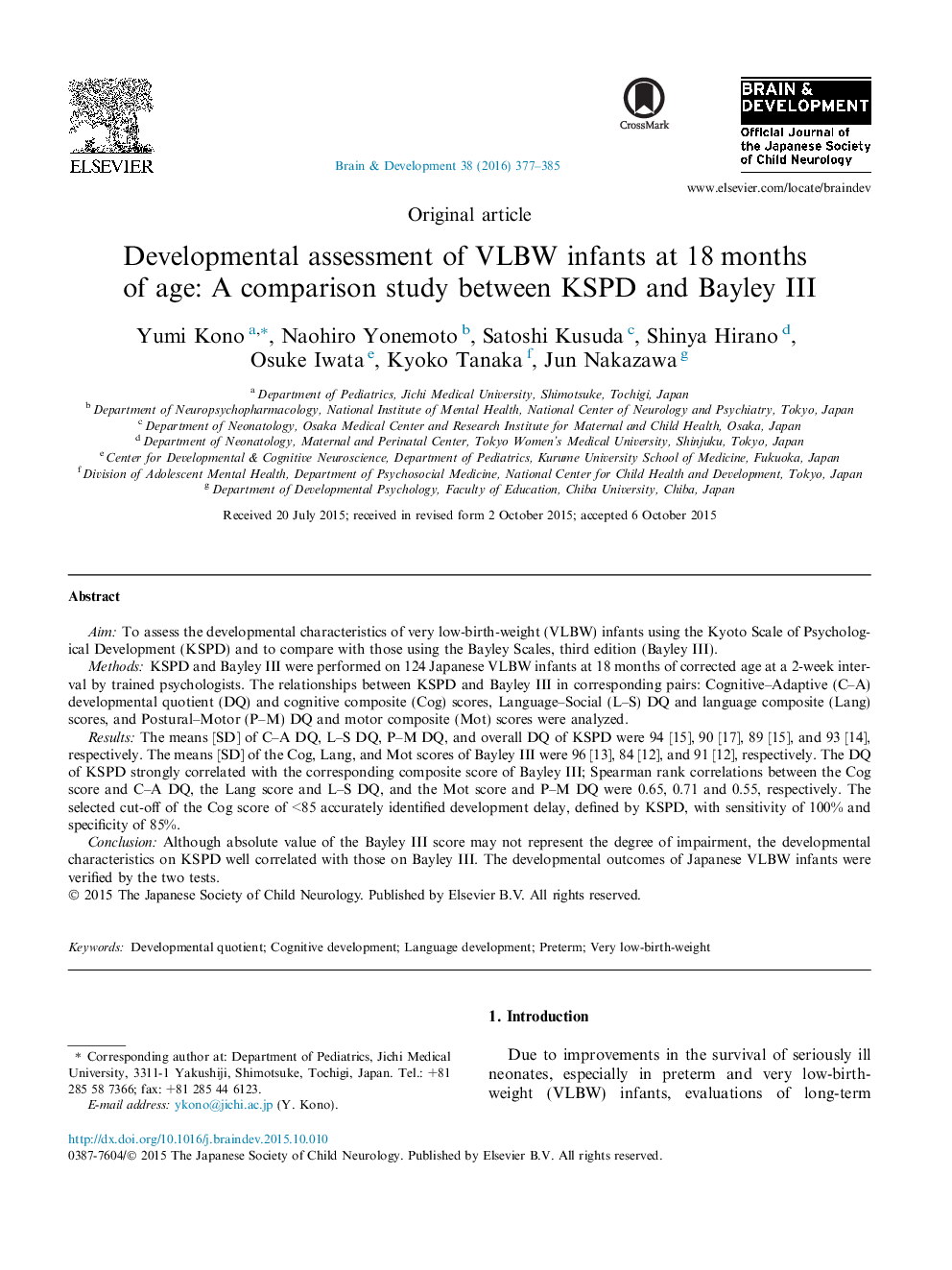| Article ID | Journal | Published Year | Pages | File Type |
|---|---|---|---|---|
| 3036513 | Brain and Development | 2016 | 9 Pages |
AimTo assess the developmental characteristics of very low-birth-weight (VLBW) infants using the Kyoto Scale of Psychological Development (KSPD) and to compare with those using the Bayley Scales, third edition (Bayley III).MethodsKSPD and Bayley III were performed on 124 Japanese VLBW infants at 18 months of corrected age at a 2-week interval by trained psychologists. The relationships between KSPD and Bayley III in corresponding pairs: Cognitive–Adaptive (C–A) developmental quotient (DQ) and cognitive composite (Cog) scores, Language–Social (L–S) DQ and language composite (Lang) scores, and Postural–Motor (P–M) DQ and motor composite (Mot) scores were analyzed.ResultsThe means [SD] of C–A DQ, L–S DQ, P–M DQ, and overall DQ of KSPD were 94 [15], 90 [17], 89 [15], and 93 [14], respectively. The means [SD] of the Cog, Lang, and Mot scores of Bayley III were 96 [13], 84 [12], and 91 [12], respectively. The DQ of KSPD strongly correlated with the corresponding composite score of Bayley III; Spearman rank correlations between the Cog score and C–A DQ, the Lang score and L–S DQ, and the Mot score and P–M DQ were 0.65, 0.71 and 0.55, respectively. The selected cut-off of the Cog score of <85 accurately identified development delay, defined by KSPD, with sensitivity of 100% and specificity of 85%.ConclusionAlthough absolute value of the Bayley III score may not represent the degree of impairment, the developmental characteristics on KSPD well correlated with those on Bayley III. The developmental outcomes of Japanese VLBW infants were verified by the two tests.
